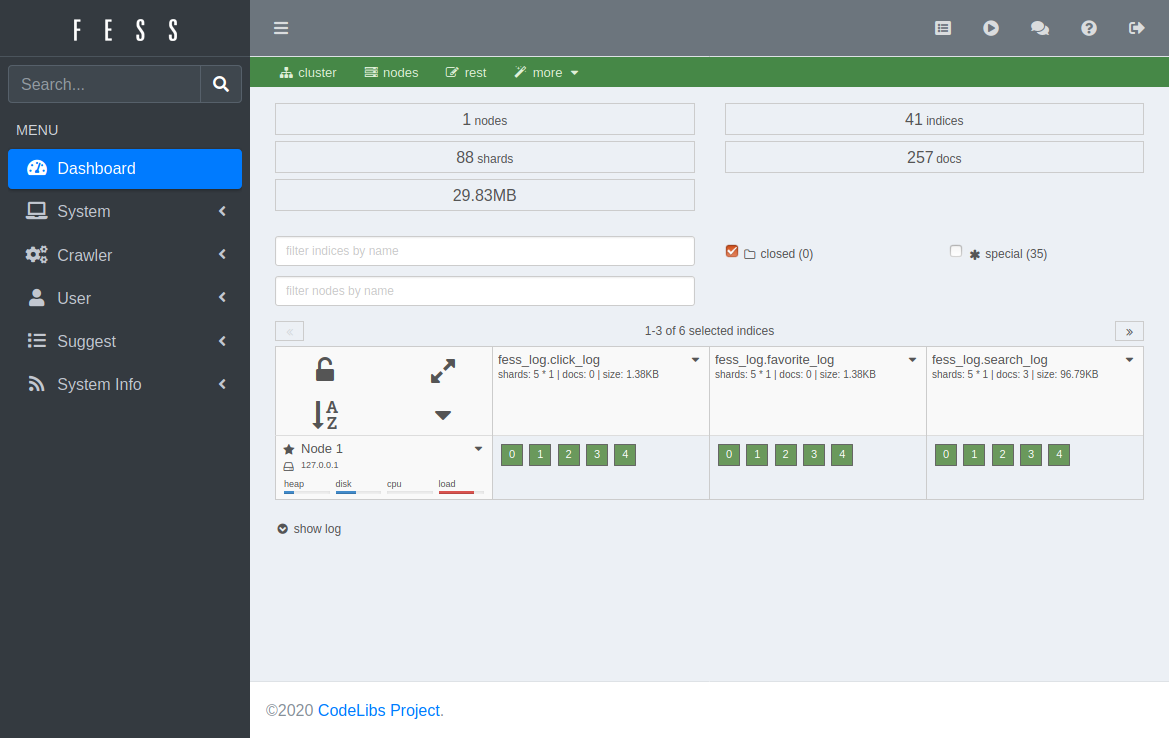- Sort Score
- Result 10 results
- Languages All
Results 61 - 70 of 377 for manually (0.04 sec)
-
docs/en/docs/contributing.md
It will serve the documentation on `http://127.0.0.1:8008`. That way, you can edit the documentation/source files and see the changes live. /// tip Alternatively, you can perform the same steps that scripts does manually. Go into the language directory, for the main docs in English it's at `docs/en/`: ```console $ cd docs/en/ ``` Then run `mkdocs` in that directory: ```console
Registered: Sun Dec 28 07:19:09 UTC 2025 - Last Modified: Sun Sep 21 11:29:04 UTC 2025 - 15.1K bytes - Viewed (0) -
README.md
 You can register crawling targets in the Admin UI on the (Web, File, Data Store) crawler configuration pages, and then start the Crawler manually on the [Scheduler page](https://fess.codelibs.org/15.3/admin/scheduler-guide.html). ## Migration from another search provider Please see [MIGRATION.md](MIGRATION.md). ## Data Store
Registered: Sat Dec 20 09:19:18 UTC 2025 - Last Modified: Sat Dec 20 00:28:33 UTC 2025 - 7.8K bytes - Viewed (2) -
src/test/java/jcifs/smb1/smb1/NetShareEnumResponseTest.java
* This test simulates a response with two share entries. */ @Test void testReadDataWireFormat() throws IOException { NetShareEnumResponse response = new NetShareEnumResponse(); // Manually set parameters that would be read by readParametersWireFormat response.numEntries = 2; byte[] params = { 0x00, 0x00, 0x00, 0x00, 0x02, 0x00, 0x02, 0x00 };Registered: Sat Dec 20 13:44:44 UTC 2025 - Last Modified: Thu Aug 14 05:31:44 UTC 2025 - 5.4K bytes - Viewed (0) -
cmd/streaming-v4-unsigned.go
return n, cr.err } if b == '\r' { // \r\n denotes end of size. err := mustRead('\n') if err != nil { cr.err = err return n, cr.err } break } // Manually deserialize the size since AWS specified // the chunk size to be of variable width. In particular, // a size of 16 is encoded as `10` while a size of 64 KB // is `10000`. switch { case b >= '0' && b <= '9':Registered: Sun Dec 28 19:28:13 UTC 2025 - Last Modified: Thu Apr 03 14:55:52 UTC 2025 - 6.3K bytes - Viewed (0) -
src/test/java/jcifs/smb/NtlmUtilTest.java
byte[] server = hex("0102030405060708"); byte[] clientChallenge = hex("0102030405060708"); long nanos1601 = 0x1122334455667788L; byte[] avPairs = hex("A1A2A3A4"); // Manually build the expected NTLMv2 blob (same as production code) int avPairsLength = avPairs.length; byte[] blob = new byte[28 + avPairsLength + 4]; Encdec.enc_uint32le(0x00000101, blob, 0); // Header
Registered: Sat Dec 20 13:44:44 UTC 2025 - Last Modified: Sat Aug 30 05:58:03 UTC 2025 - 12K bytes - Viewed (1) -
guava/src/com/google/common/util/concurrent/AbstractExecutionThreadService.java
* methods. This class uses a single thread to execute the service; consider {@link AbstractService} * if you would like to manage any threading manually. * * @author Jesse Wilson * @since 1.0 */ @GwtIncompatible @J2ktIncompatible public abstract class AbstractExecutionThreadService implements Service { /* use AbstractService for state management */Registered: Fri Dec 26 12:43:10 UTC 2025 - Last Modified: Fri Jul 11 18:52:30 UTC 2025 - 7.5K bytes - Viewed (0) -
src/test/java/jcifs/SmbResourceLocatorTest.java
throw new MalformedURLException("Only SMB URLs are supported in the dummy implementation"); } this.urlStr = urlStr; // Parse SMB URL manually String remaining = urlStr.substring(6); // Remove "smb://" int slashIndex = remaining.indexOf('/'); if (slashIndex == -1) { this.host = remaining;
Registered: Sat Dec 20 13:44:44 UTC 2025 - Last Modified: Thu Aug 14 05:31:44 UTC 2025 - 8K bytes - Viewed (0) -
docs/changelogs/changelog_2x.md
* **WebSocket API now uses `RequestBody` and `ResponseBody` for messages.** This is a backwards-incompatible API change. * **The DNS service is now pluggable.** In some situations this may be useful to manually prioritize specific IP addresses. * Fix: Don't throw when converting an `HttpUrl` to a `java.net.URI`. Previously URLs with special characters like `|` and `[` would break whenRegistered: Fri Dec 26 11:42:13 UTC 2025 - Last Modified: Sun Feb 06 02:19:09 UTC 2022 - 26.6K bytes - Viewed (0) -
src/main/java/org/codelibs/fess/mylasta/direction/FessFwAssistantDirector.java
direction.directLoggingTitle(fessConfig.getDomainTitle(), fessConfig.getEnvironmentTitle()); // this configuration is on sea_env.properties because it has no influence to production // even if you set true manually and forget to set false back direction.directFrameworkDebug(fessConfig.isFrameworkDebug()); // basically false // you can add your own process when your application is booting or closing
Registered: Sat Dec 20 09:19:18 UTC 2025 - Last Modified: Thu Jul 17 08:28:31 UTC 2025 - 9.4K bytes - Viewed (0) -
android/guava-tests/test/com/google/common/net/PercentEscaperTest.java
IllegalArgumentException expected = assertThrows(IllegalArgumentException.class, () -> new PercentEscaper(" ", true)); assertThat(expected).hasMessageThat().isEqualTo(msg); } /** Helper to manually escape a 7-bit ascii character */ private String escapeAscii(char c) { Preconditions.checkArgument(c < 128); String hex = "0123456789ABCDEF"; return "%" + hex.charAt((c >> 4) & 0xf) + hex.charAt(c & 0xf);Registered: Fri Dec 26 12:43:10 UTC 2025 - Last Modified: Wed Jul 16 20:34:52 UTC 2025 - 5.3K bytes - Viewed (0)